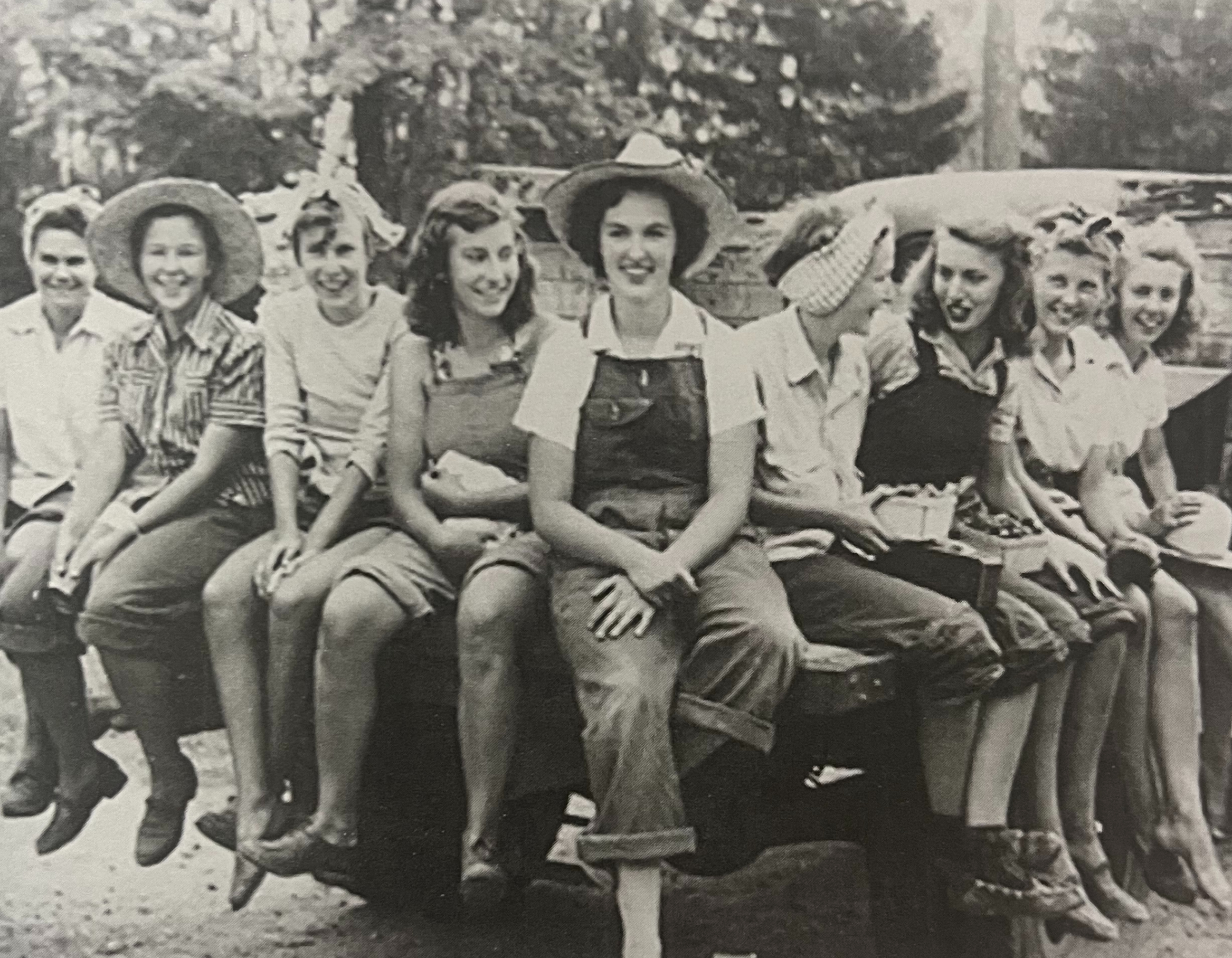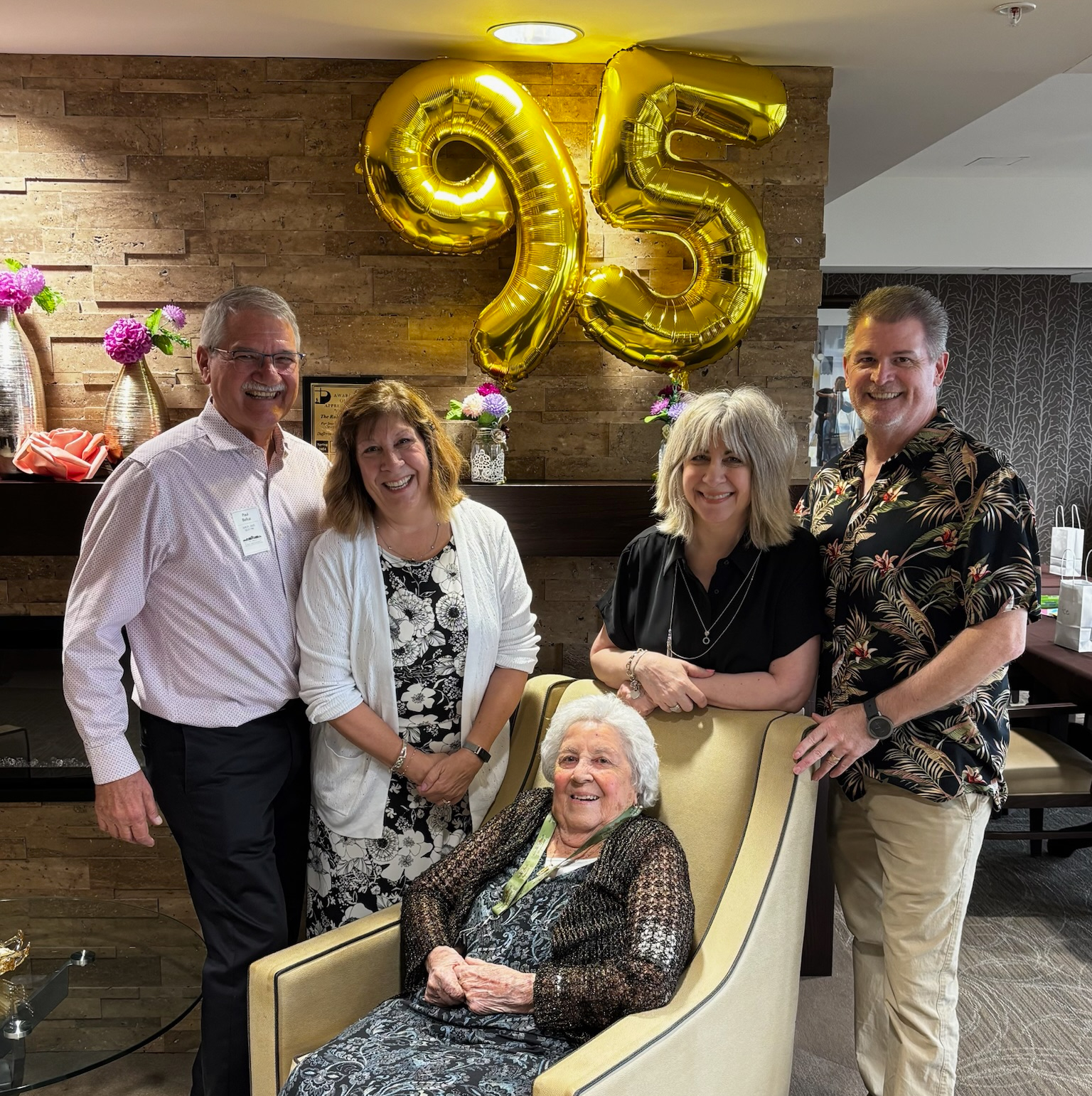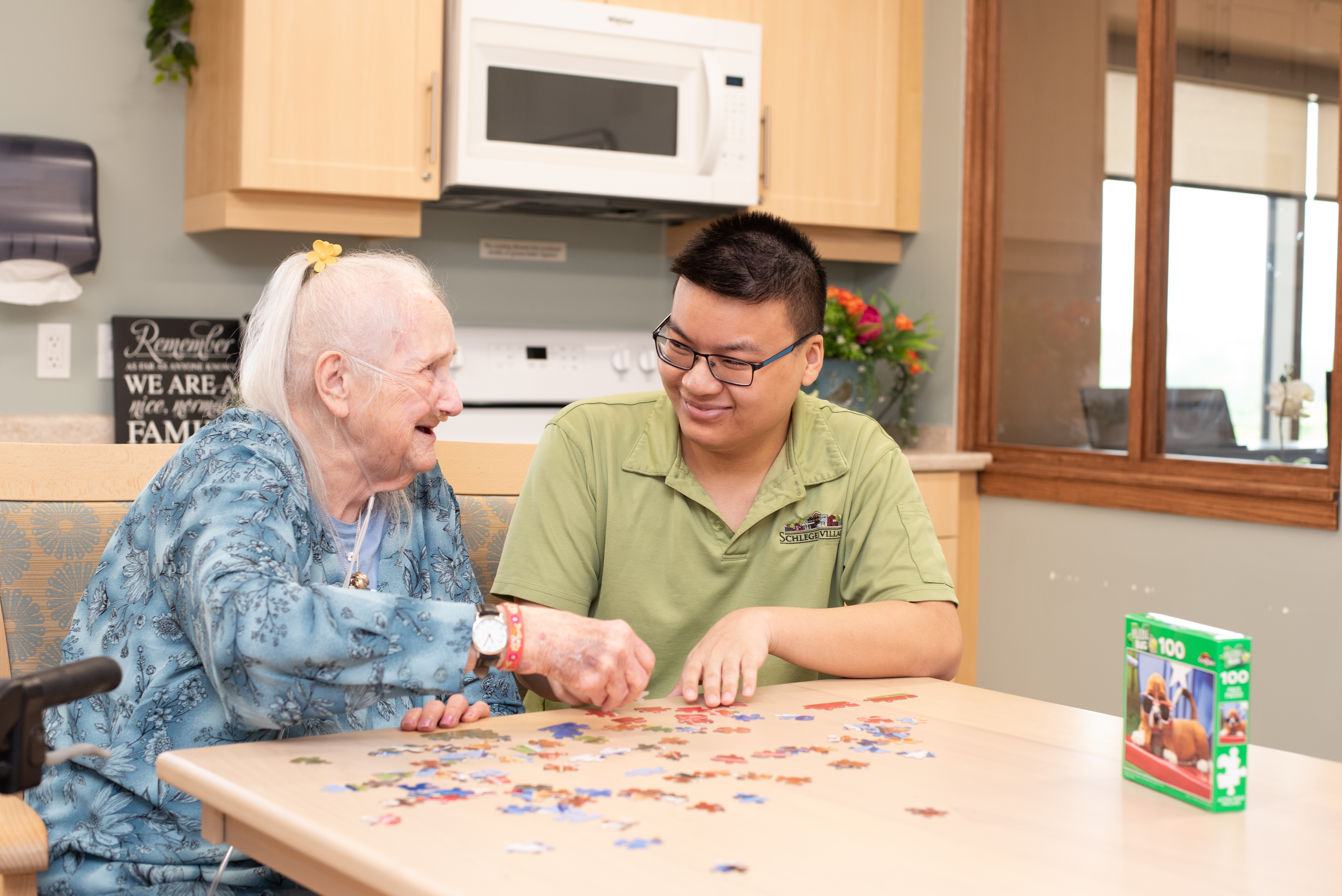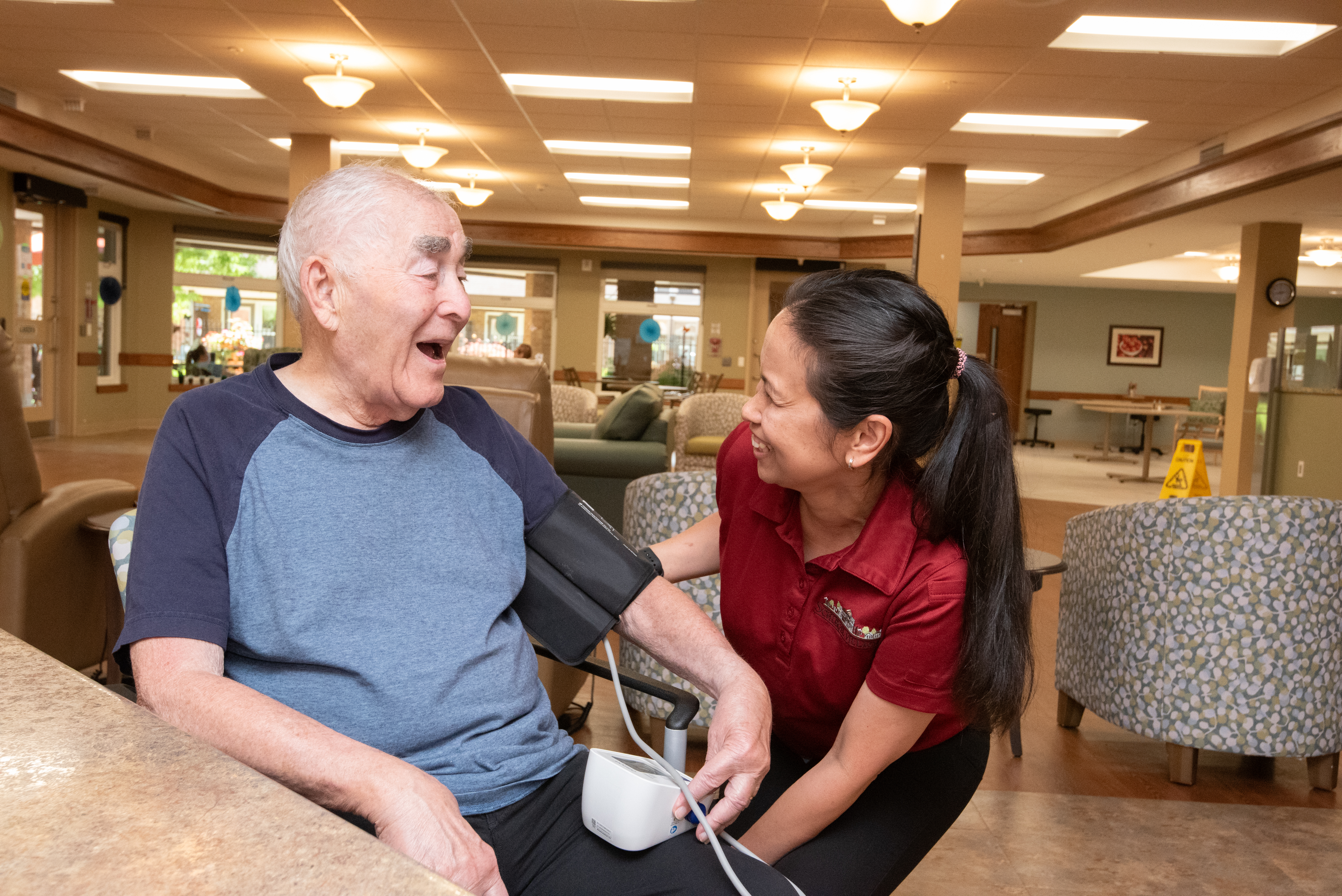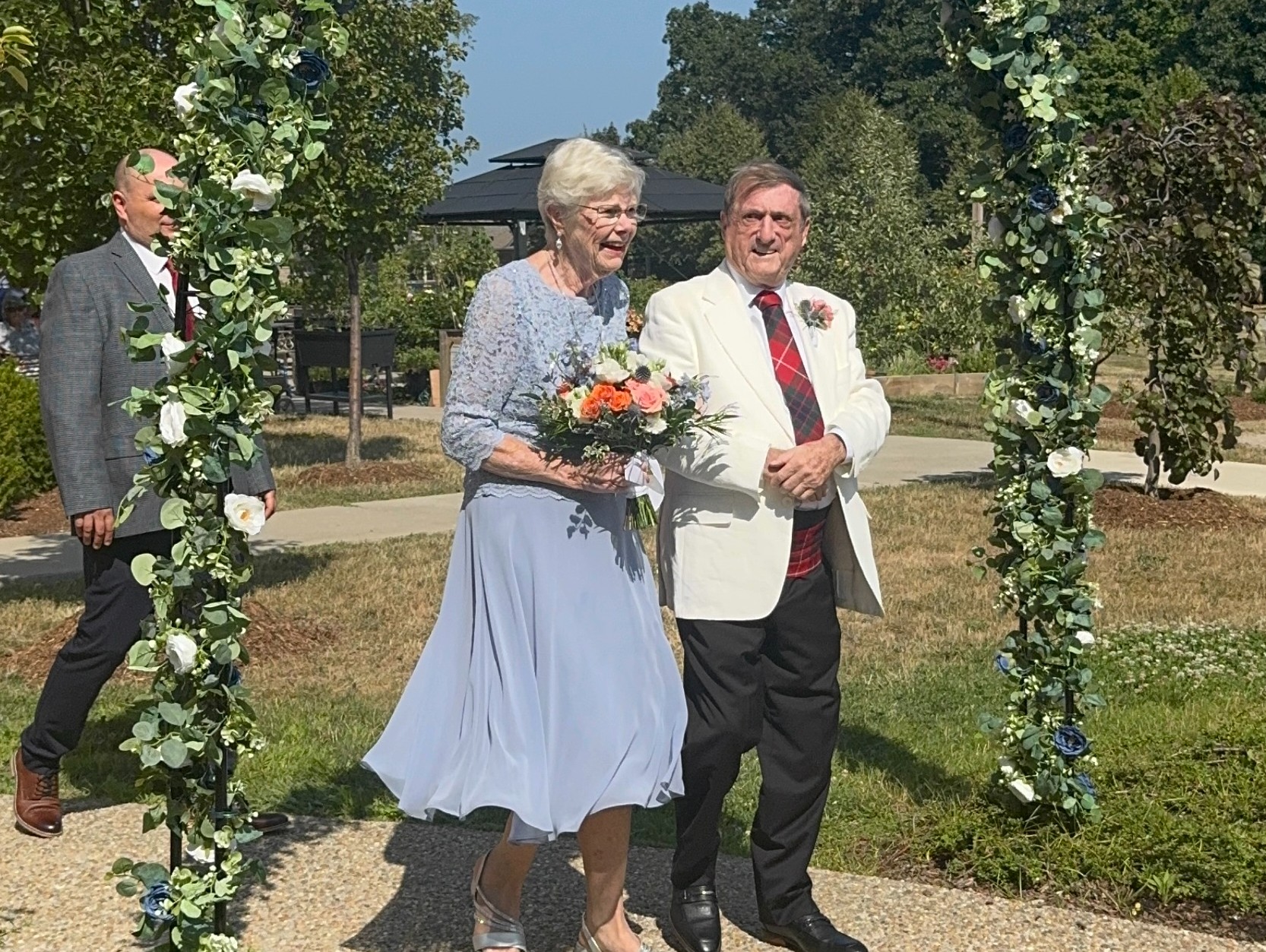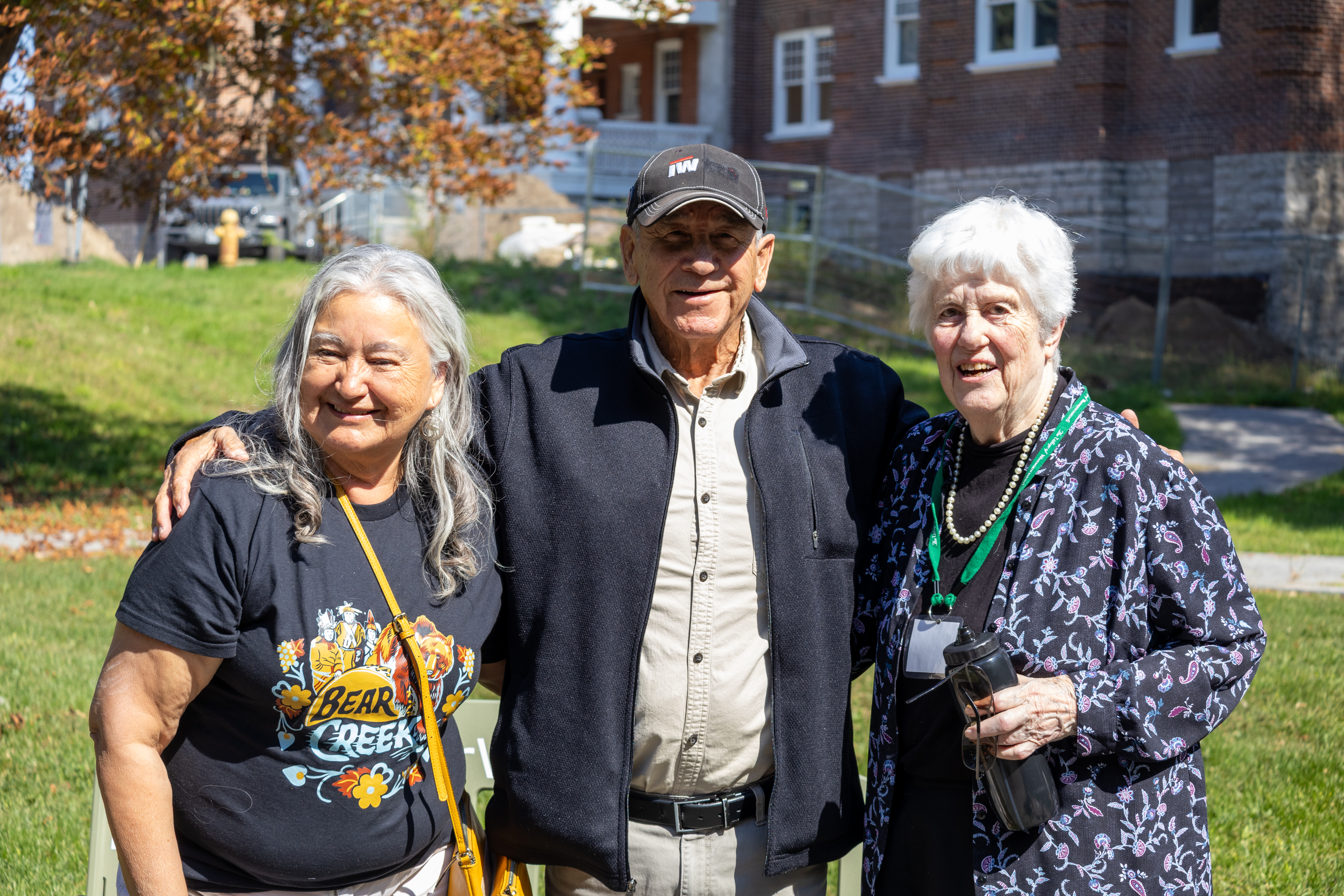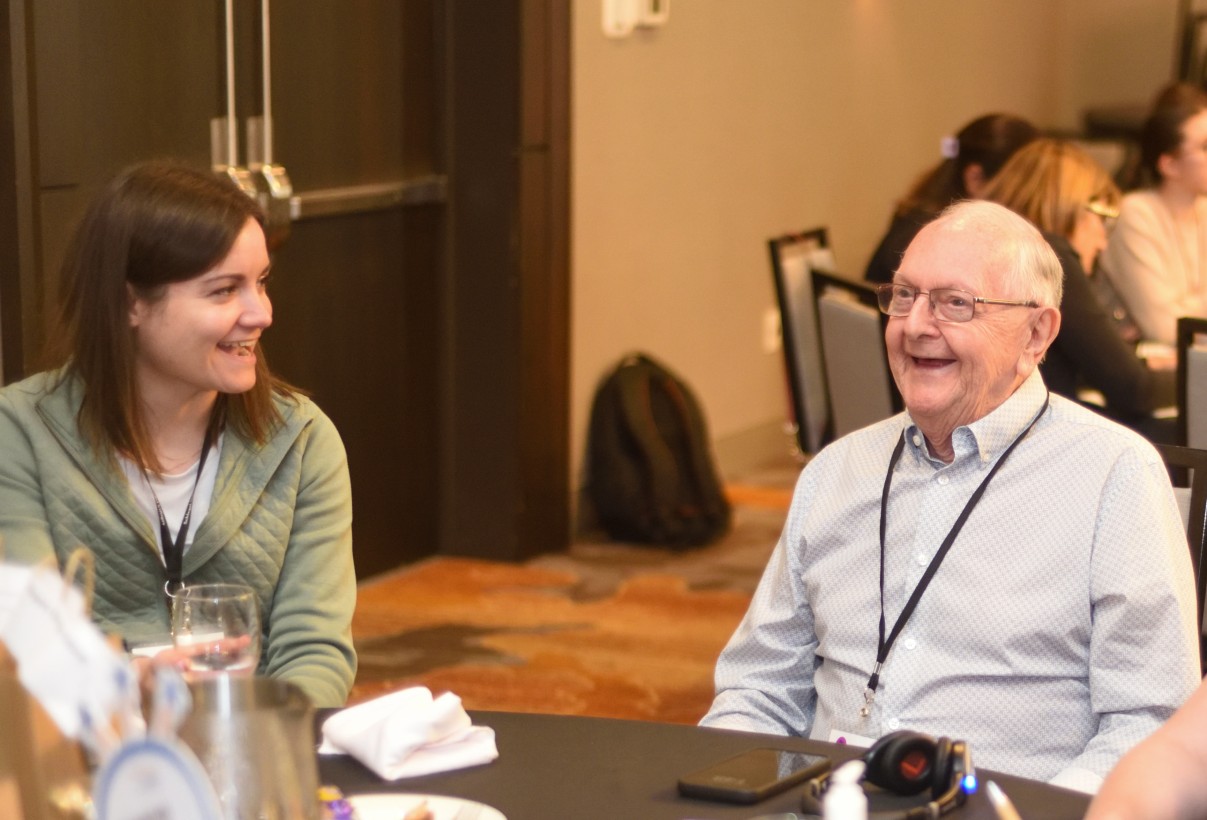Schlegel Villages team members share philosophy at Culture Change Exchange
By Kristian Partington
More than 40 presenters were on hand at Waterloo’s Schlegel Centre of Excellence for Innovation in Aging on May 11-12 for a knowledge-sharing event hosted by the Schlegel-UW Research Institute for Aging.
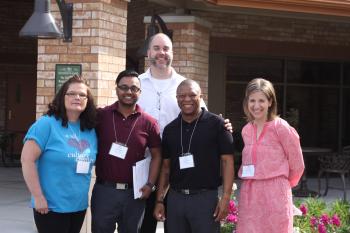
Merry,, Zaheer, Cadin, Cody and Tamara all brought their persepctives
on culture change to a gathering in Waterloo May 11-12
The Culture Change Exchange, say organizers, was presented in response to an extensive survey of Ontario Long-Term Care (LTC) stakeholders indicating that when it comes to changing the culture of aging, people want more information. They want to hear what other organizations are doing, they want practical ideas and information and they want to know that, despite the many challenges, it is possible to successfully steer away from the institutional model of care that still dominates the sector and support seniors in a social model that puts living first.
Leadership from some of the most well-known service providers in the sector were well represented, including Schlegel Villages, and associations representing the providers, residents and families played an important role in the event. However, among the many presentations that resonated with the audience, those featuring the viewpoints of some Schlegel Villages team members who work directly with residents seemed to generate much of the excitement.
Two neighbourhood coordinators (NCs), two housekeepers and one personal support worker shared their experience from the villages of Aspen Lake, St. Clair, University Gates and Winston Park in back-to-back presentations. The main focus of both presentations centred on the importance of creating a strong environment for relationships among team members and residents to thrive in each neighbourhood. The position of the NC, which Schlegel Villages introduced five years ago, essentially allows for one person to support the needs of everyone in one or possibly two neighbourhoods serving 32 residents. The NC, in many ways, is the epitome of cross-functionality – some have backgrounds in nursing, while others may have recreation or housekeeping as their original jobs. What matters perhaps more than their experience is their ability to support a wide range of team members whose ultimate focus is on the individual contentment of every resident in the neighbourhood. The NC is the main point of contact for a neighbourhood, whereas under the previous model, a director of nursing care might have been responsible for an entire village of 196 residents.
The ratio under a NC of 1:64 or even 1:32 makes a difference, the audience heard. Ideally, these smaller, more compact teams are more cross-functional, with all team members able to contribute to whatever is needed at any given time. “That’s not my job,” is something teams are hearing less and less as the culture change journey continues at Schlegel Villages, and though change does take time and there are challenges, progress is being made.
“Although we all have different titles – RPN, housekeeping, maintenance, PSWs – we all have the same role and the same goal, and that’s to put living first,” said Cody Turner, a housekeeper at St. Clair. “There’s nothing more important than that.”
Cody says cross-functionality is the mainstay of team member interaction in his village, allowing residents more time to nurture authentic relationships with those who support them. His advice to all those attending the Culture Change Exchange, which was echoed by his fellow presenters, is to create space for those relationships to thrive.
- Previous
- View All News
- Next
